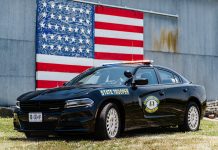By of MissouriNet
The Missouri Department of Elementary and Secondary Education (DESE) has surveyed the state’s roughly 550 K-12 school districts and charter schools to see which ones incorporate the concepts of Critical Race Theory into their classrooms.
Of the 425 districts that responded, one said they work with CRT and three said they include the New York Times 1619 Project. Those districts are Kansas City Public Schools, Hazelwood and University City.
Critical Race Theory refers to a 40-year body of academic study that says racism and inequity are embedded in American institutions and legal systems. It is taught largely in higher education, but some opponents of the teaching, especially conservative Republicans, say it is being taught in some Missouri K-12 schools and having a negative impact on students.
The New York Times 1619 Project is a long-form journalism project and corresponding curriculum that says slavery is a central part of American history, starting in 1619.
The survey was requested by Sen. Karla Eslinger, R-Wasola.
The Missouri Legislature’s Joint Committee on Education held a public hearing on July 19 to get feedback on the concepts of Critical Race Theory. The only members of the public who were allowed to testify were those were invited by Shelbina Republican Sen. Cindy O’Laughlin, the committee chair.
DESE provided information to the committee about its role in local decisions and curriculum, but the remaining testimony was in opposition of CRT ideas and use.
The public was allowed to send written testimony to O’Laughlin’s office but the hearing notice said the comments were not going to be included in the hearing’s minutes. Missourinet contacted O’Laughlin’s office last week and again today to ask for the written testimony as well as the full list of invited guests. This story will be updated when the information is provided.
After the hearing, Kansas City Democratic Representative Ashley Bland Manlove, the chair of the Black Legislative Caucus, called it an attempt at “state-sponsored censorship,” and said that the lack of diverse voices allowed to testify shows a specific political agenda. No one who testified was African American.






